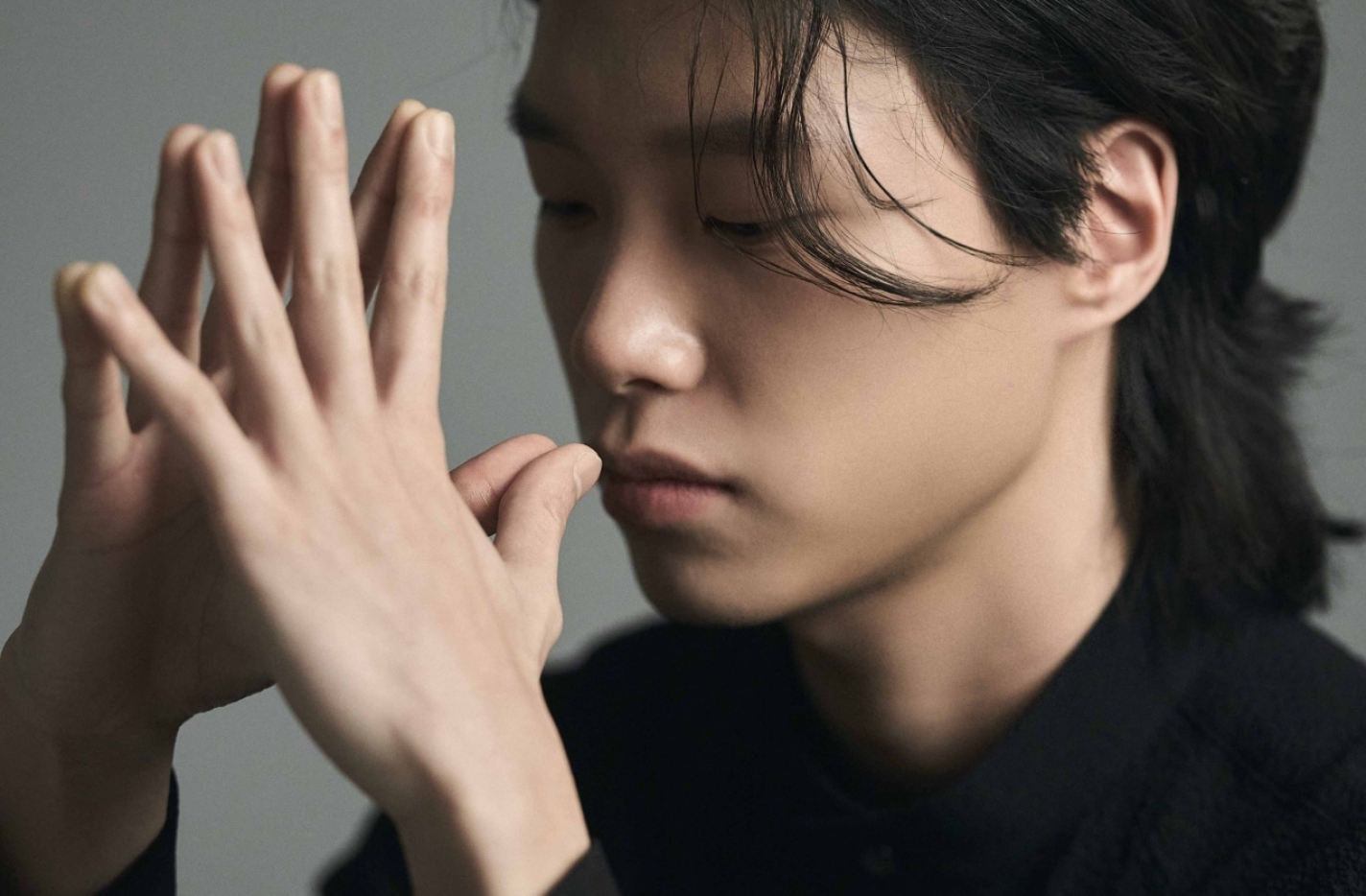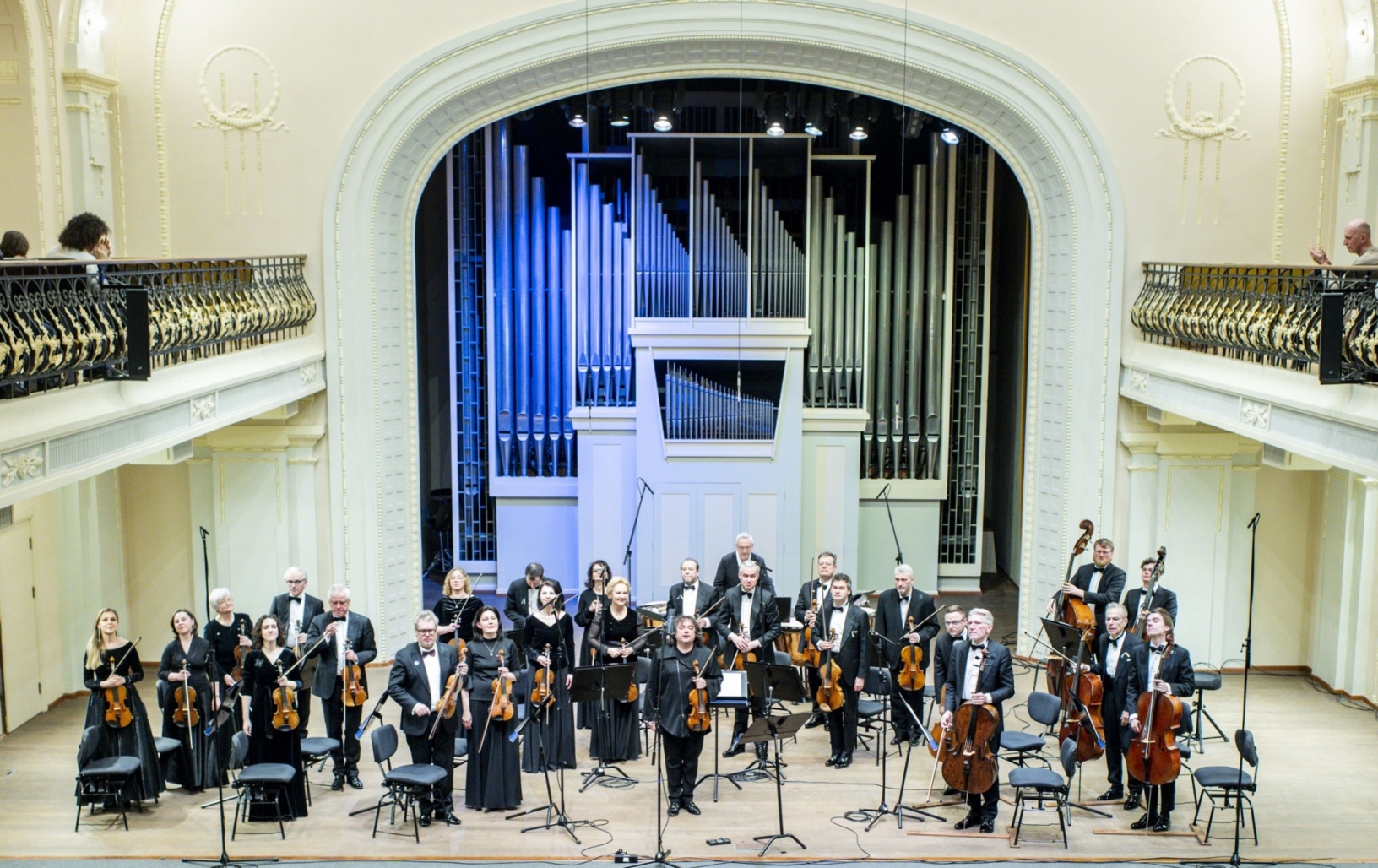Guests of the LNSO. Jinhyung Park, Bartosz Nowak, Warsaw National Philharmonic Choir
Performers
LITHUANIAN NATIONAL SYMPHONY ORCHESTRA
(artistic director and principal conductor Modestas Pitrėnas)
WARSAW NATIONAL PHILHARMONIC CHOIR
(artistic director and conductor Bartosz Michałowski)
Soloists:
JINHYUNG PARK (piano, South Korea; the winner of the IX International M. K. Čiurlionis Piano Competition 2023)
BARTOSZ NOWAK (tenor, Poland)
Conductor MODESTAS PITRĖNAS
Programme
LUDWIG VAN BEETHOVEN – Overture Die Weihe des Hauses (The Consecration of the House), Op. 124
FELIX MENDELSSOHN – Concerto for piano and orchestra No. 1 G minor, Op. 25
KAROL SZYMANOWSKI – Symphony No. 3, Op. 27, Pieśń o nocy (Song of the Night) for tenor, choir and orchestra
About
The Lithuanian National Symphony Orchestra begins its 84th season by inviting renowned foreign artists to its home-base – the Lithuanian National Philharmonic Society. The audience will hear Jinhyung Park, winner of the International M.K. Čiurlionis Piano Competition, the prestigious Grammy-winning Warsaw National Philharmonic Choir and the talented tenor Bartosz Nowak, as they immerse themselves in three different musical stories inspired by the theme of home.
The concert will begin with Beethoven’s overture Die Weihe des Hauses (The Consecration of the House), which opened the doors of the oldest theatre in Vienna still operating today. Mendelssohn’s First piano concerto was inspired by the music making of the young pianist Delphine von Schauroth, for whom the composer nurtured romantic feelings and hoped to kindle the warmth of own home together.
The evening will culminate in Szymanowski’s symphony Pieśń o nocy (Song of the Night), which was written when the composer returned to his native Poland from a trip to the Mediterranean. Inspired by the impressions of his long wanderings, the work captures the mysterious beauty of the oriental night. A poem by the 13th-century Persian mystic Jalāl al-Dīn Rūmī, that served as a text to the symphony, combined with Szymanowski’s ecstatic music creates a particularly expressive emotional charge. “The whole score glows with a wonderful colour – rich, but never blinding or austere, like Persian paintings or silk carpets. This kind of intuition is unprecedented in Western music”, the Persian composer Kaikhosru Sorabji comented on the impression that the symphony left on him.
Concert partner – The Polish Institute in Vilnius
Concert partly funded by the Ministry of Culture’s Professional Art Promotion Programme
Partners




